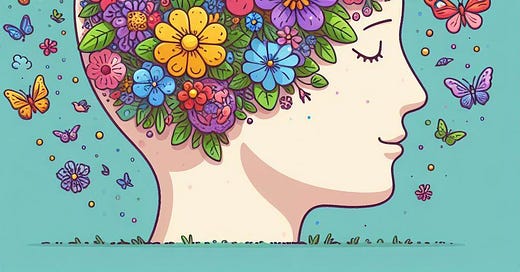Man’s Search for Meaning Session 4: A Spotless Mind Doesn’t Lead to Freedom
What if our troubles are the pathway to inner freedom?
You might remember the movie Eternal Sunshine of the Spotless Mind. Joel (Jim Carrey) and his girlfriend Clementine (Kate Winslet) are in a troubled relationship and decide to have memories of each other erased in a vain attempt to make themselves happy. Eternal sunshine refers to the mistaken belief that peace and happiness can be achieved by controlling our experience. The brilliant writer of the movie, Charlie Kaufman, understood that the peace we seek doesn’t come by burying our troubles.
We might believe a life devoid of troubling emotions would bring us joy. We might think that if our experiences in life were going more our way, we would be happier. We might wonder why the books we read don’t offer a permanent cure for disturbing, habitual thought patterns.
In the preface to Man’s Search for Meaning, Frankl wrote what became one of the book’s most quoted passages:
Don’t aim at success—the more you aim at it and make it a target, the more you are going to miss it. For success, like happiness, cannot be pursued; it must ensue, and it only does so as the unintended side-effect of one’s dedication to a cause greater than oneself or as the by-product of one’s surrender to a person other than oneself. Happiness must happen, and the same holds for success: you have to let it happen by not caring about it. I want you to listen to what your conscience commands you to do and go on to carry it out to the best of your knowledge. Then you will live to see that in the long run—in the long run, I say!—success will follow you precisely because you had forgotten to think of it.
Viktor Frankl asserted that attempts to create happiness by controlling our experience are destined to fail. With control as our navigating guide for life, when we don’t feel right, we flail like a fish out of water, struggling to get back to what we think is safety. Man’s Search for Meaning is an immortal book because Frankl repeatedly reminds us of our power of choice.
Viktor Frankl had no control over anything in the concentration camps, and yet he found inner freedom. Frankl learned from those who rose above the bestial conditions of the concentration camps that nothing can take away, “The last of the human freedoms: to choose one's attitude in any given set of circumstances, to choose one's own way.” Frankl continued,
And there were always choices to make. Every day, every hour, offered the opportunity to make a decision, a decision which determined whether you would or would not submit to those powers which threatened to rob you of your very self, your inner freedom; which determined whether or not you become the plaything to circumstance, renouncing freedom and dignity to become molded into the form of the typical inmate.
We are not in concentration camps, but many of us have renounced our human freedom by forgetting there are “always choices to make.” We deny we have relinquished agency. If someone asks us why we are unhappy, we are ready to explain who or what is to blame for our troubles. Yet, blaming isn’t freedom, and striving for a spotless mind is foolhardy.
What if our troubles are the pathway to inner freedom?



